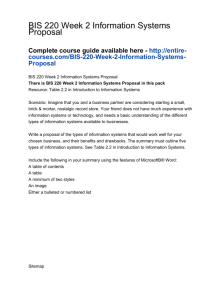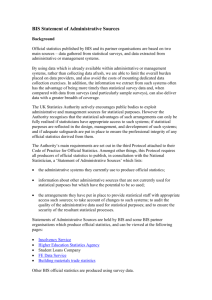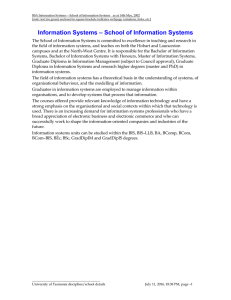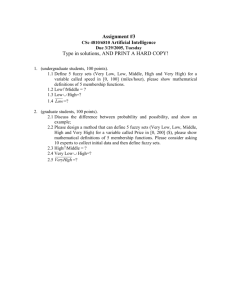Introduction to “Evaluating and Selecting Business Intelligence
advertisement
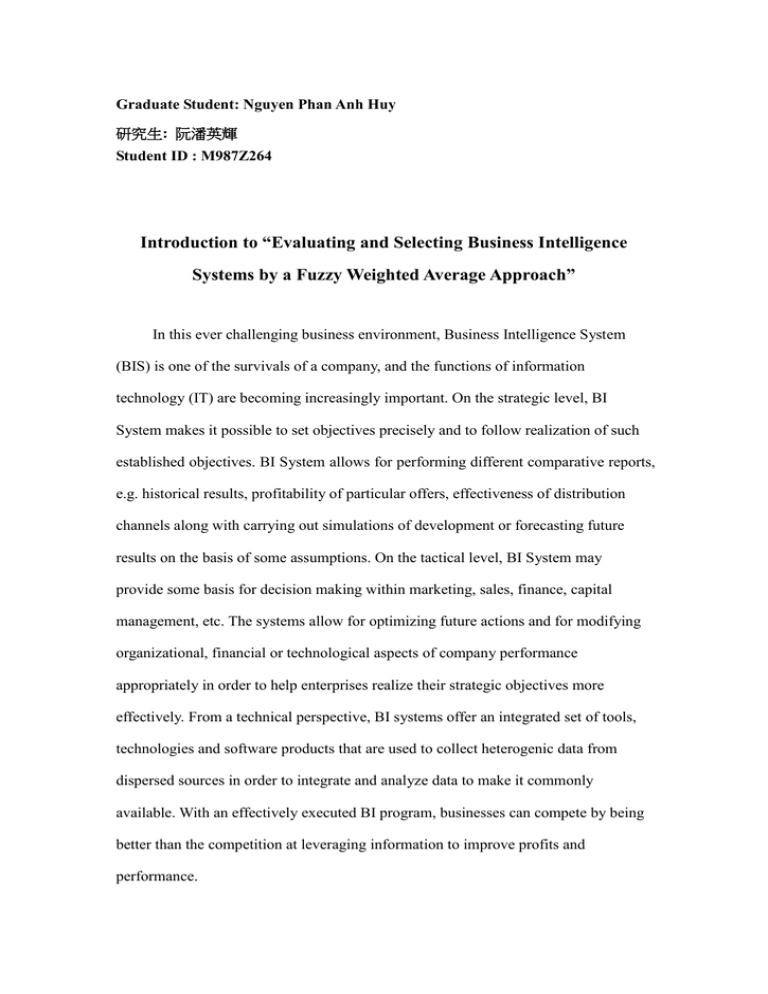
Graduate Student: Nguyen Phan Anh Huy 研究生: 阮潘英輝 Student ID : M987Z264 Introduction to “Evaluating and Selecting Business Intelligence Systems by a Fuzzy Weighted Average Approach” In this ever challenging business environment, Business Intelligence System (BIS) is one of the survivals of a company, and the functions of information technology (IT) are becoming increasingly important. On the strategic level, BI System makes it possible to set objectives precisely and to follow realization of such established objectives. BI System allows for performing different comparative reports, e.g. historical results, profitability of particular offers, effectiveness of distribution channels along with carrying out simulations of development or forecasting future results on the basis of some assumptions. On the tactical level, BI System may provide some basis for decision making within marketing, sales, finance, capital management, etc. The systems allow for optimizing future actions and for modifying organizational, financial or technological aspects of company performance appropriately in order to help enterprises realize their strategic objectives more effectively. From a technical perspective, BI systems offer an integrated set of tools, technologies and software products that are used to collect heterogenic data from dispersed sources in order to integrate and analyze data to make it commonly available. With an effectively executed BI program, businesses can compete by being better than the competition at leveraging information to improve profits and performance. Evaluating the appropriate BIS for required conditions is the critical strategic decisions in formulating a business strategy. Evaluating the new system is a time consuming and difficult process, requiring advanced knowledge and deep experience. For a proper and effective evaluation, the decision maker may need a large amount of data to be analyzed and many factors to be considered. While building a BIS, decision-makers are faced with the challenge of selecting the most efficient information system. The evaluation of a few BIS at the same time with limited resources is impossible. Thus, BIS selection becomes an efficient resources allocation procedure. In this resource allocation problem, the evaluation process of alternatives brings some difficulties. The major problem is the consideration of multiple objectives which are generally conflicting with each other and measured in different scales. Although a number of factors were found to be influential in the choice of BIS. BIS evaluation is an inherently uncertain activity. To deal with the uncertainty in decision making, a fuzzy weighted average (FWA) method and centroid ranking method from Wang et al. (2006) are adopted. Fuzzy weighted average (FWA) is a function of fuzzy numbers and is useful as an aggregation method in management and engineering science based on fuzzy sets theory by Zadeh. It provides a discrete approximate solution by α-cuts level representation of fuzzy sets and interval analysis. This study presents an empirical approach of BIS evaluation and a real life evaluation process is presented to illustrate the effectiveness of the approach.
